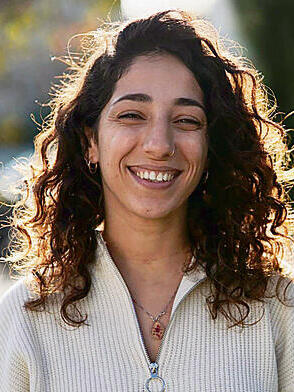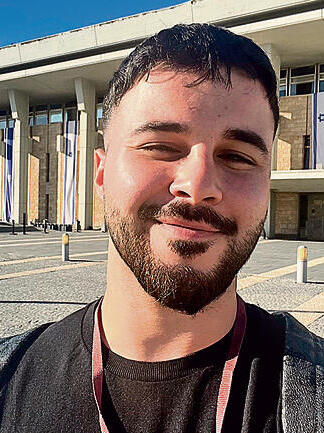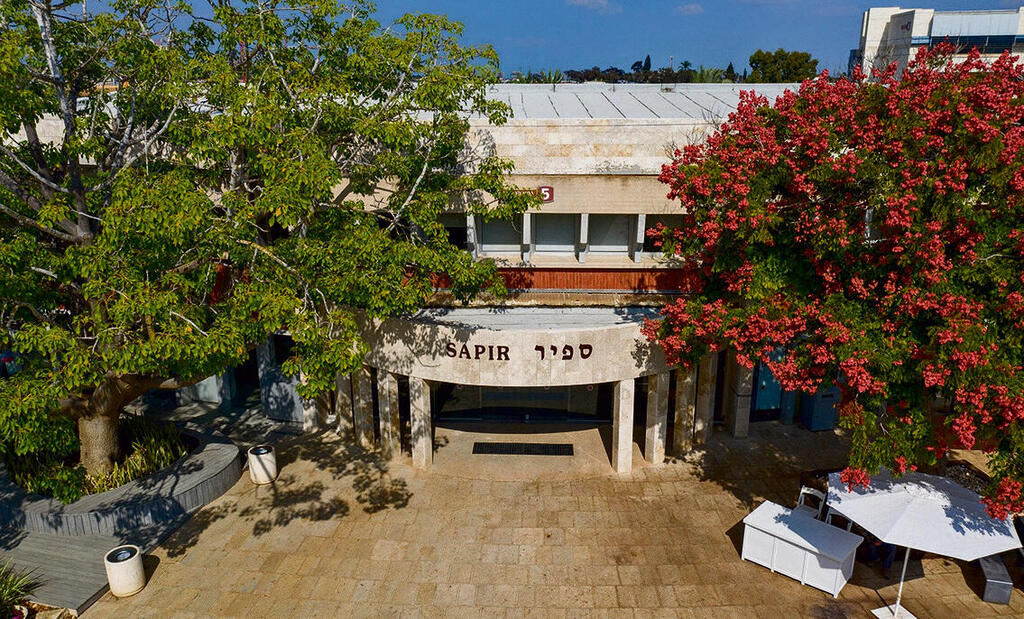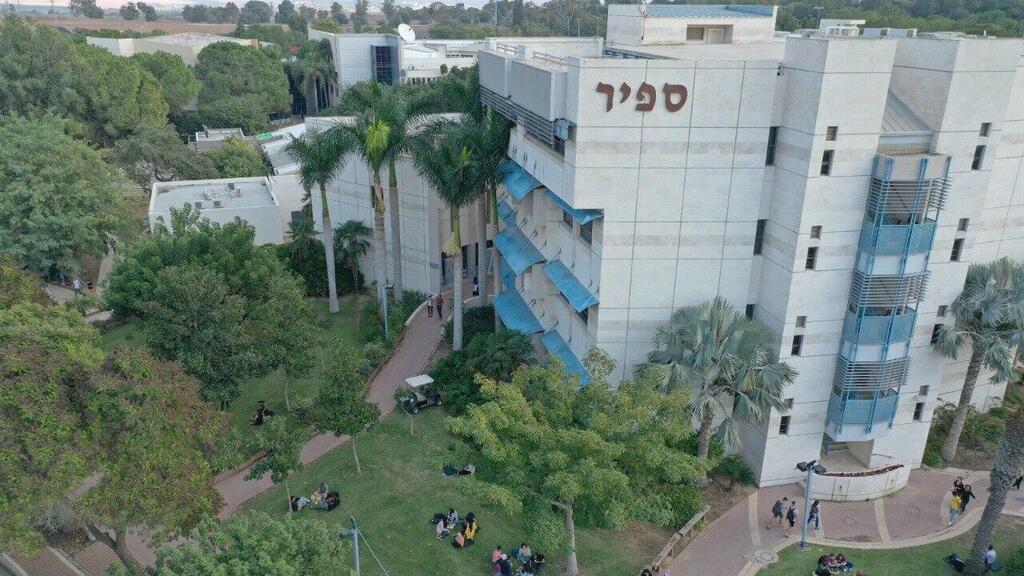Getting your Trinity Audio player ready...
"Our return comes with no joy. Studying at college in a war zone while hearing constant gunfire isn’t simple," says Netta Mashaali, a second-year communications student at Sapir Academic College, located close to Sderot in southern Israel near the border with Gaza. The college reopened on Sunday for its second semester with frontal lessons after students studied remotely since the Hamas massacre on October 7 and the start of the war in Gaza.
The college, located less than four kilometers from the Gaza border, suffered a severe blow on October 7. After several delays, the academic year began on December 24, and students may now attend class physically for the first time. However, their return for the second semester has been met with protests from many students who believe it’s too early to return to the area and oppose mandatory attendance in classes.
One of them is Mashaali, who was evacuated from Sderot and then called for reserve duty. "I haven't returned to Sderot yet, and I'm temporarily staying with family and friends," she says. "Even my roommates haven't returned because they’re afraid. We still hear loud explosions. The return to the college is premature. I don't feel safe enough. While we received free tuition for the academic year, and there was flexibility in the first semester, now they’re trying to throw us back into normalcy and routines that don’t exist."
 Netta Mashaali
Netta MashaaliDan Ezra from Noga, a second-year communication student, also opposes the return to in-class studies. "I'm not happy to return," he says. "They shouldn't have started yet. On the one hand, I can understand the desire to return to a routine, but the war is still ongoing, and we’re close to the border. It's really not ideal, and attendance requirements at this time are absurd."
In contrast, Gal Amar, a first-year communication student from Kiryat Gat, is happy to return to frontal learning at the college. "We studied on Zoom throughout the first semester, and it's exhausting," he says.
 Dan Ezra
Dan Ezra"I'm tired of it. I want to go to college, meet the students, friends and lecturers. I'm not afraid. I trust the college and the country to provide us with security and protection. I'm really looking forward to going back,” he added.
The college notes that, out of an understanding of the pedagogical importance of students' presence in class, a policy of mandatory attendance in both online and physical classes will be implemented in the second semester.
 Gal Amar
Gal Amar"We see the return to campus as of utmost importance for the region's future and the personal recovery of each of us," said Sapir College President Nir Kedar. "At the same time, we understand the uncertainty many of us face and, therefore, a gradual and measured return to campus has been decided upon.”
“Studies in the second semester will mostly be conducted online, alongside frontal study days on campus. We’re aware of the difficulties and challenges in this and will assist as required to ensure the return takes place slowly and cautiously," he added.
Chairman of the Sapir College Student Union, Adi Shalev, said: "The union welcomes the opportunity to return to campus, but won’t stand by when our students are left behind. In our current reality, there’s no place to force students to attend classes and demand they choose between their physical and mental safety and their right to receive proper academic education."
Meanwhile, students at the college are demanding the immediate dismissal of Dr. Regev Nathansohn, a lecturer in the college’s Communication Department, who signed a petition alleging that Israel is committing genocide in Gaza and calling on U.S. President Joe Biden to stop aiding the country.
"We believe that his presence and political activity fundamentally damage the academic climate and the trust that we students place in our institution. His actions damage the fabric that connects the diverse people in the college. Just taking part in the education of students who were and still are fighting to protect all of us, and him, causes discomfort," the students wrote in a letter to the administration.
Sapir Academic College responded to the petition. "We strongly condemn statements against IDF soldiers and treat the harm experienced by the students with all seriousness. It is important for us to clarify beyond any doubt: the petition and its signatories do not represent Sapir in any way. Many of the students and faculty members at Sapir are survivors of the murderous Shabbat, evacuated from their homes, and serving in the reserves and security forces, and we support them. Along with the basic value of academic freedom and freedom of speech, which the college has been enshrining since its founding, the lecturer unequivocally made clear not to use the college's name in personal and/or political contexts, and he does not represent it in these contexts," according to the college.




